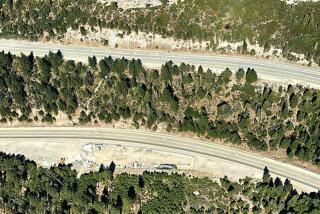Chinese carmaker BYD defends its electric vehicle after fiery crash
BEIJING — The Warren Buffett-backed Chinese carmaker BYD Co. is defending the safety of its e6 electric car after the vehicle was involved in a fiery collision that killed three people and raised fresh concerns about one of China’s most ambitious companies.
BYD, which was considered one of China’s most promising brands just a few years ago, said Saturday’s crash in the southern city of Shenzhen occurred when a drunk driver in a Nissan GT-R coupe, speeding at 112 mph, slammed into an e6 taxi, killing the driver and two passengers.
Word that the driver of the Nissan sports car fled the scene went viral on China’s Twitter-like micro-blogs, where stories of rich people behaving badly are wildly popular. The accident has been one of the top trending topics for days.
“Interest in the crash was far heavier than we could have imagined,” BYD spokesman Paul Lin said in a phone interview Tuesday. “We are very sorry for the deaths, and we are trying, of course, to find out why the car set on fire.”
The attention from social media is why BYD stock may have plunged on the first day of trading after the accident, Lin said.
BYD shares fell 5.9% in Hong Kong and 2.6% in Shenzhen on Monday. The stock recovered Tuesday, climbing 5.5% in Hong Kong and 2.3% in Shenzhen.
The Shenzhen carmaker said in a written statement Tuesday that the e6 had passed all government tests and had been used as taxis in Shenzhen for more than two years. In that time, the car has been involved in 18 rear-end collisions. None resulted in injuries, fatalities or fire, the company said.
The most recent high-profile accident marks another setback for BYD, which has struggled to deliver on the optimism raised in 2009 by Buffett’s purchase of a 10% stake of the company for $230 million.
Chief among those disappointments has been the failure to produce an affordable electric car or breakthrough battery technology. The overwhelming majority of its sales are of traditional gas-powered cars.
BYD, which stands for Build Your Dreams, is ranked 10th in China in passenger-vehicle market share, at 3.2%, according to LMC Automotive, a global research firm.
Sales in May were down 19% from a year earlier, and the company has yet to begin selling its cars in the U.S. after opening its North American headquarters in October on Figueroa Street in downtown Los Angeles.
Michael Dunne, head of auto consulting firm Dunne & Co. in Indonesia, said the harsh investor reaction Monday reflected rising skittishness about the company’s performance.
“When it comes to the technology itself and the reliability and safety of their cars, BYD has not been totally forthcoming with investors,” Dunne said. “They say, ‘Trust us. We know what we’re doing, and Warren Buffett wouldn’t invest in us unless we were the real deal.’”
Still, Dunne said, the company deserves patience considering it was founded only in 2003 and that General Motors Co. and Nissan Motor Co. have also had trouble delivering electric vehicles.
“Imagine Ford, Toyota or Hyundai at that age,” Dunne said. “Not only does BYD have ambitions to build cars but ambitions to build electric vehicles. No one has done that well yet.”
More to Read
Inside the business of entertainment
The Wide Shot brings you news, analysis and insights on everything from streaming wars to production — and what it all means for the future.
You may occasionally receive promotional content from the Los Angeles Times.











